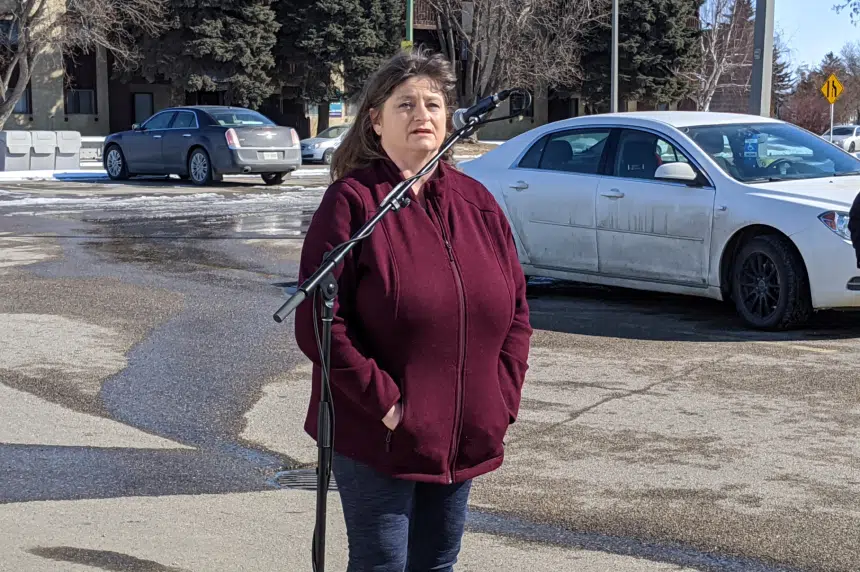One of Saskatchewan’s largest unions is joining the Saskatchewan NDP to call on the province for increased protections and guidelines for frontline retail workers employed during the novel coronavirus pandemic.
Opposition leader Ryan Meili was pleased to see the province announce far-reaching closures to businesses across the province Wednesday, but feels essential staff still working are being forgotten about.
“There’s a lot of scrambling to catch up with what is a new situation,” Meili said Thursday at a news conference. “But we have people who are now on the frontlines of this work, or who are coming in to shop, are feeling really concerned.
“That’s why we need the government to step up and not leave it in a situation where the frontline workers and the owners of the businesses are making it up as they go along and doing things differently store-to-store — we need some across the board guidelines.”
The United Food and Commercial Workers Local 1400 president Norm Neault addressed a letter to Premier Scott Moe on Wednesday urging more health and safety precautions for its members.
“The grocery, service and retail sectors and their frontline workers have been essentially overlooked regarding regulatory measures to protect them during the current public health crisis,” Neault wrote in the letter, adding that some businesses have taken necessary precautions, while others have not.
“We ask that you mandate, without delay, health and safety standards for retail industry employees to protect retail workers, consumers and residents of this province during this public health crisis.”
UFCW 144 represents roughly 5,000 grocery and retail store workers in Saskatchewan.
Neault addressed 12 areas of concern and mandates the province should enact immediately in his letter.
Those include protective shields at all cashier tills, staff dedicated to sanitizing stores, a limitation on customers in the store and a temporary ban or limitation on advertising.
Gail Mack works at a Superstore in Saskatoon and said many of the mandate recommendations by UFCW 1400 are in place at her location, but congestion has become an increasing concern.
“Minimizing the amount of people in these businesses, as consumers, would go a long way to help safeguarding,” she said. “When you have too many people in the store, which I have definitely seen, there’s not enough room for people to line up and be safe.”
Protections UFCW 1400 is seeking include security enforcing social distancing, sanctioned limits on purchasing with enforceable fines to consumers, a prohibition on reusable bags and a minimum $2 an hour premium to the wages of front line workers.
On Wednesday, the government banned all public gatherings of 10 people or more, in addition to ordering many more businesses to close their physical locations.
That order does not include businesses deemed critical. Grocery stores, pharmacies, liquor stores, hardware stores, convenience stores and hotels and others were excluded from the ban.
“We urge you to take immediate action to set the minimum standards for health and safety in the retail industry,” Neault wrote in the letter.
“This can save lives.”







